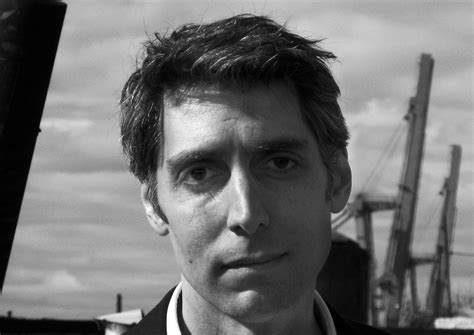Top 1200 Great Cities Quotes & Sayings
Explore popular Great Cities quotes.
Last updated on December 22, 2024.
In great cities, spaces as well as places are designed and built: walking, witnessing, being in public, are as much part of the design and purpose as is being inside to eat, sleep, make shoes or love or music. The word citizen has to do with cities, and the ideal city is organized around citizenship -- around participation in public life.
The Spirit of Cities presents a new approach to the study of cities in which the focus is placed on a city's defining ethos or values. The style of the book is attractively conversational and even autobiographical, and far from current social science positivism. For a lover of cities--and perhaps even for one who is not--The Spirit of Cities is consistently good reading.
For the most part, French cities are much better preserved and looked after than British cities, because the bourgeoisie, the people who run the cities, have always lived centrally, which has only recently begun to happen in big cities in England. Traditionally in England, people who had any money would live out in the suburbs. Now, increasingly, people with money live in the cities, but this has changed only in the last 20 or so years.
But look what we have built low-income projects that become worse centers of delinquency, vandalism and general social hopelessness than the slums they were supposed to replace. Cultural centers that are unable to support a good bookstore. Civic centers that are avoided by everyone but bums. Promenades that go from no place to nowhere and have no promenaders. Expressways that eviscerate great cities. This is not the rebuilding of cities. This is the sacking of cities.
You came to tell us that the great cities are in favour of the gold standard; we reply that the great cities rest upon our broad and fertile plains. Burn down your cities and leave our farms, and your cities will spring up again as if by magic. But destroy out farms and the grass will grow in the city...You shall not press down upon the brow of labour this crown of thorns. You shall not crucify mankind upon a cross of gold.
As a country, Americans have to find a way to keep our cities solvent. If large numbers of cities no longer have the necessary tax base, we have to find federal methods to intervene. If we don't, there's a risk of dozens of cities simply being left to their bankrupt fates - and I can't see how that serves anybody's interests in the long run.
Nothing lasts forever. But—especially as it seems to me cities and humans are symbiotically and inextricably bound at this point—I hope cities have a good, long run. Plus, cities are beautiful creatures in their own right; and as with us, their vulnerability and ephemerality are part of that beauty.
In some of the great cities of Europe - Paris, Vienna, Prague, and Brussels - tourists bored with life above ground can descend below. All these cities have sewer museums and tours, and all expose their underbelly willingly to the curious. But not London, arguably the home of the most splendid sewer network in Europe.
We have great cities to visit: New York and Washington, Paris and London; and further east, and older than any of these, the legendary city of Samarkand, whose crumbling palaces and mosques still welcome travelers on the Silk road. Weary of cities? Then we’ll take to the wilds. To the islands of Hawaii and the mountains of Japan, to forests where Civil War dead still lie, and stretches of sea no mariner ever crossed. They all have their poetry: the glittering cities and the ruined, the watery wastes and the dusty; I want to show you them all. I want to show you everything.
I have been dwelling upon downtowns. This is not because mixtures of primary uses are unneeded elsewhere in cities. On the contrary they are needed, and the success of mixtures downtown (on in the most intensive portions of cities, whatever they are called) is related to the mixture possible in other part of cities.
The opportunities of the twenty-first century make those of us who care about cities feel like kids in a candy store: How will cities survive and lead the way in the transformation required to combat global warming? Resilient Cities gives us a road map for this epic journey upon which we are embarking.
As industries migrate toward the Far East, the future of many Western cities will no longer lie in manufacturing products but ideas and patents. Young, mobile elites can choose where they want to live, and they can easily move, which means that cities are involved in a heated competition for the best people. Only the most attractive cities can benefit from this development.
In trading with each other cities can't be in too different stages of development, and they can't copy one another. Backward cities, or younger cities, or newly forming cities in supply regions, have to develop to a great extent on one another's shoulders. This is one of the terrible things about empires. Empires want them only to trade with the empire, which doesn't help them at all. It's just a way of exploiting them.
Fifty percent of the world's population lives in cities. In a couple of decades, 70 percent of the world's population will be living in cities. Cities are where the problem is. Cities are where the solution is, where creativity exists to address the challenges and where they have most impact. This is why, in 2005, the C40 was founded, an organization of cities that address climate change. It started with 18 cities; now it's 91. Cities simply are the key to saving the planet.
What people want now, they want jobs. They want great jobs with good pay. And I'll tell you, we're spending a lot of money on the inner cities - we are fixing the inner cities - we are doing far more than anybody has done with respect to the inner cities. It is a priority for me, and it's very important.
While cities are distinguished by their architecture and physical appearance, Bell and de-Shalit make a compelling case that many major world cities--and their inhabitants--also express their own distinctive ethos or values. The Spirit of Cities takes the reader on a wide-ranging and lively personal journey.
Some remain great cities, but they shouldn't stand still. They should move in the direction of a knowledge-oriented society. Most cities have to do something to draw attention to themselves and make their particular assets visible on the international radar. I'm not talking about developing countries, but about the United States and Europe.
You have to take in the whole picture, and ask, "What is it you want? What kind of world do you want?" So, I have drawings of different cities. Those cities have an end goal; they're not just cities. The end goal of those cities is to make things relevant to people that they respond to. There's no other way.
I've worked in the gay clubs in Moscow, and the big cities. They're much more tolerant. It's the small cities where you get the prejudice. Kind of like America. Here in New York City, or San Francisco, it's great. But, like, in Tennessee or down South, it gets harder. It's that situation. But it was really bad in Russia because of law enforcing.
















































